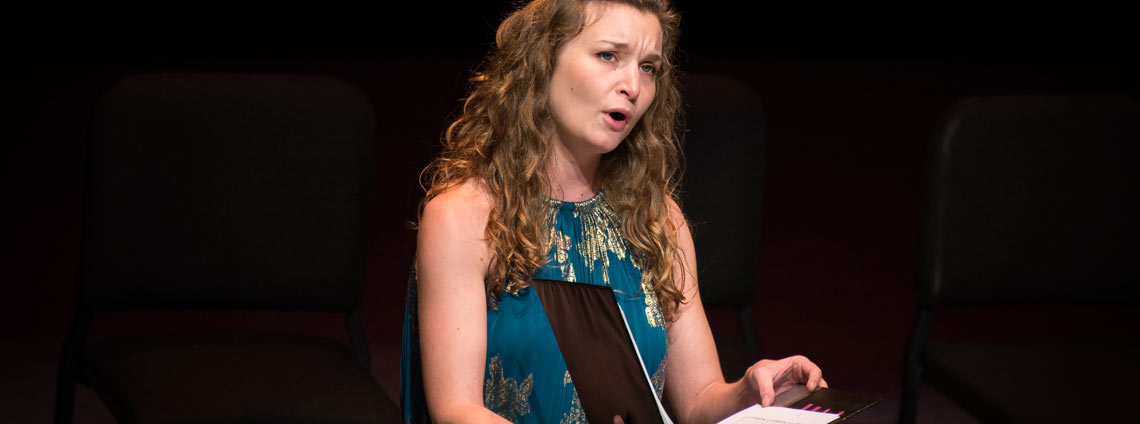Roy Barnett Recital Hall | Map
Pascale Beaudin, soprano; Danielle Reutter-Harrah, mezzo-soprano; Marc Destrubé, violin; Tekla Cunningham, violin; Paul Luchkow, viola; Beiliang Zhu, cello; Natalie Mackie, violone; Michael Jarvis, organ; Stephen Stubbs, lute
Pre-concert chat at 6:45 PM with Marc Destrubé, Danielle Reuter-Harrah, and Matthew White
Perhaps the most celebrated queen in Western music history, the Virgin Mary, has inspired countless sacred musical tributes. This programme includes three superb examples, Giovanni Battista Pergolesi’s Stabat Mater for soprano and alto soloists, his Salve Regina in C Minor and Handel’s exquisite Ah! che troppo ineguali.
Early Music Vancouver thanks Natalie Mackie for lending her cello.
This event is generously sponsored by KNOX & CO.
A collaboration with the Whidbey Island Music Festival
PROGRAMME (TEXTS AND TRANSLATIONS)
Ah! che troppo ineguali HWV 230 – G.F Handel (1685-1759)
Trio Sonata Op. 4, No. 10 A. Corelli (1653-1713)
Salve Regina in C Minor – G.B. Pergolesi (1710-1736)
Intermission
Stabat Mater – G. B. Pergolesi (1710-1736)
PROGRAMME NOTES
Venerated as Queen of Heaven, Our Lady of Mercy, and Holy Mother of God, the Virgin Mary is perhaps the most celebrated queen in Western history, and the inspiration for innumerable musical tributes. Tonight’s programme presents three poignant examples of Marian music from eighteenth century Italy. During this time, a general change in the intellectual climate also impacted the religion, triggering a shift from the pomp and ceremony of Baroque Catholicism to a more intimate, subjective sense of piety. Sacred music no longer functioned as opulent accessory to worship, but aimed to move the listeners and solicit their compassion. Marian worship focused on her roles as mother and as intercessor for the downcast.
Georg Frideric Handel’s recitative and aria “Ah che troppo ineguali… O del ciel Maria Regina” is a prayer to the Queen of Heaven for peace in time of war. The aria is mainly stately and serene, but occasionally punctuated by sharp dissonances that reflect the conflict described in the text. Handel wrote this music in Rome as Europe was embroiled in the War of Spanish Succession. The exact circumstances of its commission are unknown, but it may have been performed at one of the Wednesday evening concerts hosted by music-loving Cardinal Ottoboni. In his diary, the Prince Anton of Ulrich of Saxe-Meiningen recorded the following colourful account of the concert held on 17 August 1708 in celebration of the Assumption of Mary.
From there [I] drove to the music at Cardinal Ottoboni’s, where [I] talked to him and also to Monsignor Bianchini, who arranged to show me the Pope’s library the next day. It was an extravagant affair, for the music was composed by nine masters. Each had written an aria. The first half [of the concert] was sung, and then some young Abbé gave a sermon in Italian concerning the Assumption of [the Blessed Virgin] Mary. After that the second half was sung by the same voices as before, namely Pascolino and Pauluggi; after that some Abbé recited Latin verses on the subject, which were imitated in Italian verse by four other priests … after that, Handel’s aria was sung solo by Pascalino. Chairs had been set out for the most important people in the audience, and my neighbor on the left was the Marchese Ruspoli’s eldest brother … Refreshments were provided.
Ottoboni’s concerts mingled sacred devotion with entertainment and socializing. The weekly festivities were led from the violin by Rome’s most famous instrumentalist, Arcangelo Corelli, nicknamed “the melodious bow”. He dedicated his Trio Sonatas, Op. 4 (1694) to the Cardinal in thanks for years of generous protection and patronage. Trio sonatas are often divided into two categories: sonatas da camera (chamber sonatas) comprised of dances, and sonatas da chiesa (church sonatas) comprised of four movements ordered according to tempo: slow-fast-slow-fast. Like Cardinal Ottoboni’s concerts, however, Corelli’s Trio Sonatas, Op. 4 mix elements of church and chamber. The Sonata in G Major, Op. 4, No 10 that you will hear this evening begins with a short Preludio followed by a playful Allegro in which the two violins toss short motives back and forth, a plaintive Grave full of dissonant suspensions, and an elegant closing Gavotte.
Giovanni Battista Pergolesi’s Salve Regina in C minor sets one of the four large-scale Marian antiphons, the most important texts used for the veneration of the Virgin. The Salve Regina lent its name to a particular devotional service. Salve services were particularly lavish events funded by lay confraternities or trade guilds, who usually made generous provision for music. Pergolesi, however, chose comparatively modest forces, a solo soprano accompanied by a small string ensemble and organ, setting the text with an exquisitely bittersweet tone. This work dates from the last months of his very short life. He died at the age of only 26 at a Franciscan monastery near Naples, where he had sought the monks’ care for his severe tuberculosis.
Though during his life Pergolesi enjoyed only moderate success, after his death he attained star status. His music was praised for its freshness and melodic grace. The Spanish music theorist Esteban Arteaga described Pergolesi’s compositional style as “simplicity coupled with nobility of style, truth of sentiment, naturalness and force of expression, purity and unity of design,” and French writer Charles de Brosses called Pergolesi’s Stabat Materthe greatest setting of a sacred Latin text. Even Johann Sebastian Bach acknowledged the power of that work, adapting the music for his cantata Tilge, Höchster, meine Sünden. Pergolesi achieved this “natural” or “galant” style by simplifying the counterpoint characteristic of sacred music. He focused musical interest in the vocal melodies, and diligently reflected the metrical stress and expressive sensibility of the text in the music, thereby ensuring clarity of comprehension. The instruments play an accompanimental role, often doubling the voice parts and only occasionally providing contrapuntal interest.
Pergolesi’s Stabat Mater is one of the most famous compositions ever written in praise of Mary. In the late nineteenth century, it even became associated with a story that the Virgin herself had dictated the music to the composer as he lay on his deathbed. The text dates from the medieval era, and describes Mary, the sorrowful mother, witnessing the suffering of her Son from the base of the cross. Commissioned by the Most Noble Order of the Knights of Our Lady of Sorrows in Naples for performance during devotional services on each Friday of Lent, Pergolesi’s setting replaced a Stabat Mater by Alessandro Scarlatti that had been performed in Naples for twenty years, and had become outdated. The significance of Pergolesi’s Stabat Mater, however, extends far beyond the ecclesiastical tradition for which it was originally intended. Here is a moving, profoundly human picture of a grieving mother.
Christina Hutten
July 2015

Pascale Beaudin, soprano
Canadian soprano Pascale Beaudin began her career at the Opéra de Montréal, in the roles of Zerlina (Don Giovanni) and Oscar (Un ballo in maschera). She has also sung Papagena (Die Zauberflöte) with Opera Lyra Ottawa. Making her début as Nannetta (Falstaff) at the Opéra de Québec, she returned as Gabrielle (La Vie parisienne) to critical acclaim.
In Europe, she sang Adèle (Le comte Ory) at the Angers-Nantes Opéra, where she was immediately invited back as Flaminia (Il mondo della luna). She has also performed with the Opéra Municipal de Marseille, the Opéra de Metz, and the Opéra National de Lorraine. In October 2013, she sang Fleurdelise (Cosi fan tutte in French) with Opera Lafayette in Washington; this production was revived in New York and Versailles in January 2014.
At ease with repertoire which ranges from Baroque to Contemporary, Pascale Beaudin has been a soloist with l’Orchestre Métropolitain, l’Orchestre Symphonique de Québec, les Violons du Roy, and l’Orchestre de la Francophonie. Pascale has been invited to take part in prestigious events, such as the Lanaudière Festival, the Orford Festival, the International Domaine Forget Festival, le Festival de Musiques Sacrées de Marseille, and the Montreal Bach Festival. True to her Acadian roots, Pascale regularly performs in Eastern Canada at events including the Lamèque International Baroque Music Festival and the Indian River Chamber Music Festival.
Pascale Beaudin has received grants from the Jacqueline Desmarais Foundation, the Canada Arts Council, the Conseil des arts et lettres du Québec and the Jeunesses Musicales du Canada. She was granted the Excellence Prize by her colleagues and mentors at the Atelier Lyrique de l’Opéra de Montréal. Her discography includes a 5-disc release of the complete works for voice and piano by Francis Poulenc for the Atma label released in October 2013.
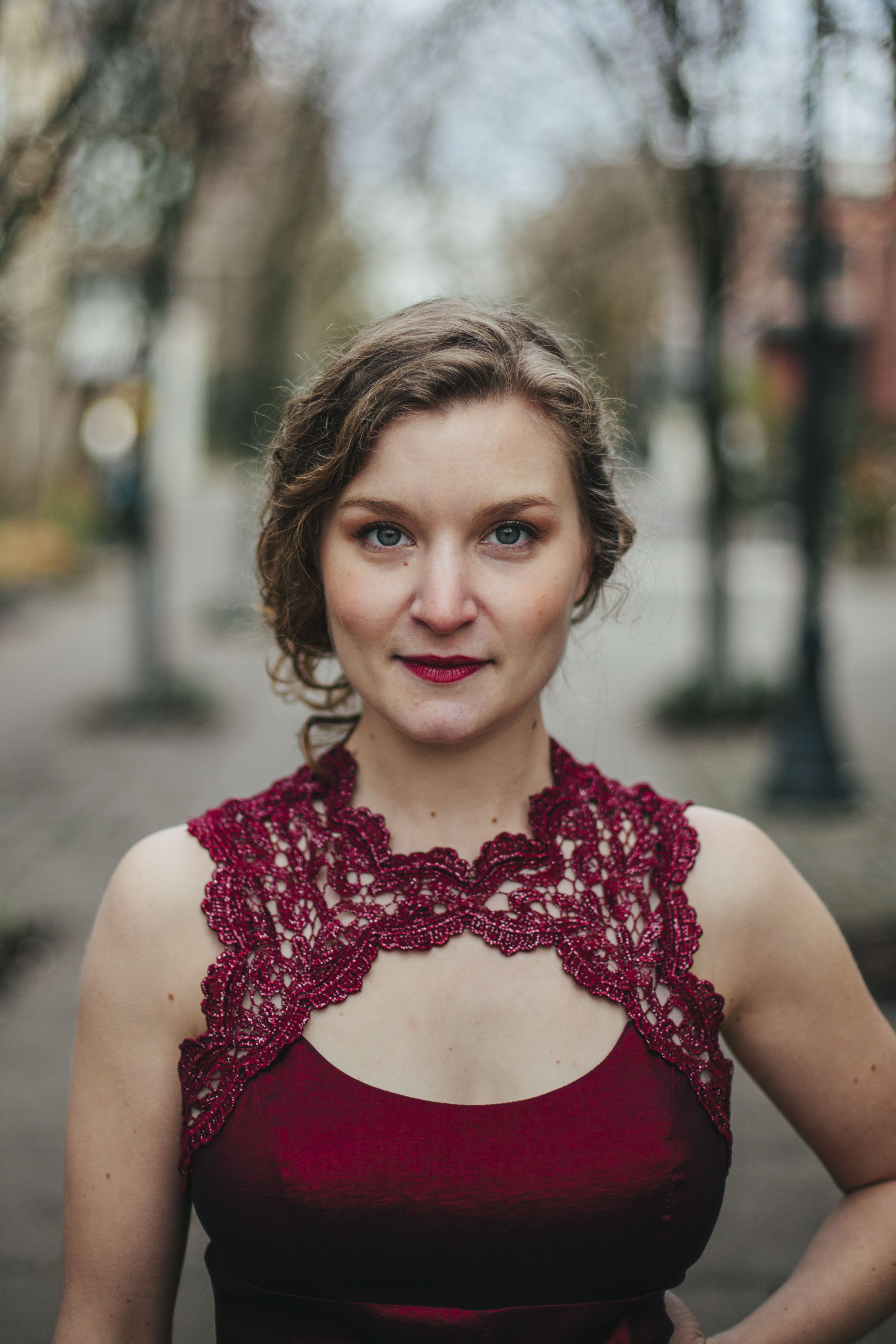
Danielle Reutter-Harrah, mezzo-soprano
Danielle Reutter-Harrah has performed at the Boston Early Music Festival, with Seattle Symphony Orchestra, Seattle Opera, California Bach Society, American Bach Soloists, Baroque Chamber Orchestra of Colorado, Alabama Symphony, and Early Music Vancouver, among others. She most recently sang the role of Belinda in Baroque Chamber Orchestra of Colorado’s semi-staged rendition of Purcell’s Dido and Aeneas. In fall 2019 she performed with Pacific MusicWorks, the Byrd Ensemble and Early Music Vancouver. The 2018/19 season involved concerts of music by Brahms, Bach, Monteverdi, Handel, Clara Schumann and Fanny Mendelssohn, and others. Reutter-Harrah is a founding member of the voice and plucked strings duo Jarring Sounds, with Adam Cockerham on guitar, theorbo, Baroque guitar and lute. She sings frequently with Seattle’s Byrd Ensemble and Pacific MusicWorks. Danielle received her Bachelor’s of Music degree from the University of Denver’s Lamont School of Music and her Master of Music degree from the San Francisco Conservatory of Music. She lives in Seattle with her husband and son.
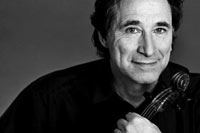
Marc Destrubé, violin
Canadian violinist Marc Destrubé is equally at home as a soloist, chamber musician, concertmaster or director/conductor of orchestras and divides his time between performances of standard repertoire on modern instruments and performing baroque and classical music on period instruments.
As a concertmaster, he has played under Sir Simon Rattle, Kent Nagano, Helmuth Rilling, Christopher Hogwood, Philippe Herreweghe, Gustav Leonhardt and Frans Brüggen. He is co-concertmaster of the Orchestra of the 18th Century with which he has toured the major concert halls and festivals of the world. He was concertmaster of the CBC Radio Orchestra from 1996 to 2002, concertmaster of the Oregon Bach Festival Orchestra, and founding director of the Pacific Baroque Orchestra.
He is first violinist with the Axelrod String Quartet, quartet-in-residence at the Smithsonian Institution in Washington D.C., where the quartet plays on the museum’s exceptional collection of Stradivari and Amati instruments. He has also performed and recorded with L’Archibudelli and is a member of the Turning Point and la Modestine ensembles and Microcosmos string quartet in Vancouver.
He has appeared as soloist and guest director with symphony orchestras in Victoria, Windsor, Edmonton and Halifax as well as with the Australian Brandenburg Orchestra, Portland Baroque Orchestra and Lyra Baroque Orchestra. A founding member of Tafelmusik Baroque Orchestra, he has appeared with many of the leading period-instrument orchestras in North America and Europe including as guest concertmaster of the Academy of Ancient Music and of the Hanover Band.
Marc has recorded for Sony, EMI, Teldec, Channel Classics, Hänssler, Globe and CBC Records.
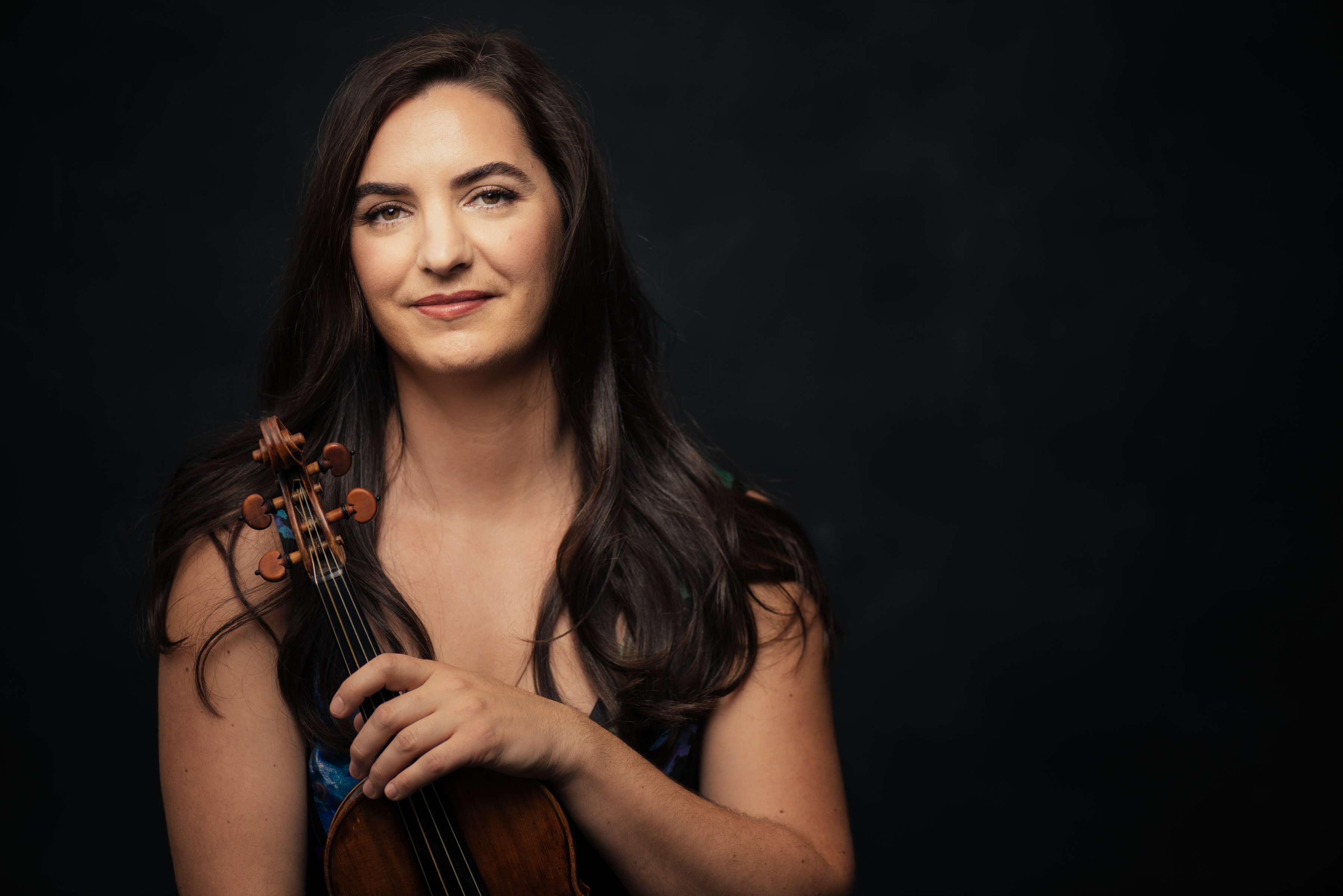
Tekla Cunningham, violin
Praised as “a consummate musician whose flowing solos and musical gestures are a joy to watch”, and whose performances have been described as “ravishingly beautiful”, “stellar”, “inspired and inspiring”, violinist Tekla Cunningham enjoys a multi-faceted career as a chamber musician, concertmaster, soloist and educator devoted to music of the baroque, classical and romantic eras. She is concertmaster and orchestra director of Pacific MusicWorks, and is an artist-in-residence at the University of Washington. She founded and directs the Whidbey Island Music Festival, now entering its fourteenth season, producing and presenting vibrant period-instrument performances of music from the 17th through 19th centuries, and plays regularly as concertmaster and principal player with the American Bach Soloists in California.
Tekla’s first solo album of Stylus Phantasticus repertoire from Italy and Austria will be released next year – music by Farina, Fonatana, Uccellini to Biber, Schmelzer and Albertini, with an extravagant continuo team of Stephen Stubbs, Maxine Eilander, Williams Skeen, Henry Lebedinsky.
Tekla received her undergraduate degree in History and German Literature at Johns Hopkins University while attending Peabody Conservatory. She studied at the Hochschule für Musik und Darstellende Kunst in Vienna Austria with Josef Sivo and Ortwin Ottmaier, and earned a Master’s Degree in violin performance at the San Francisco Conservatory with Ian Swenson.
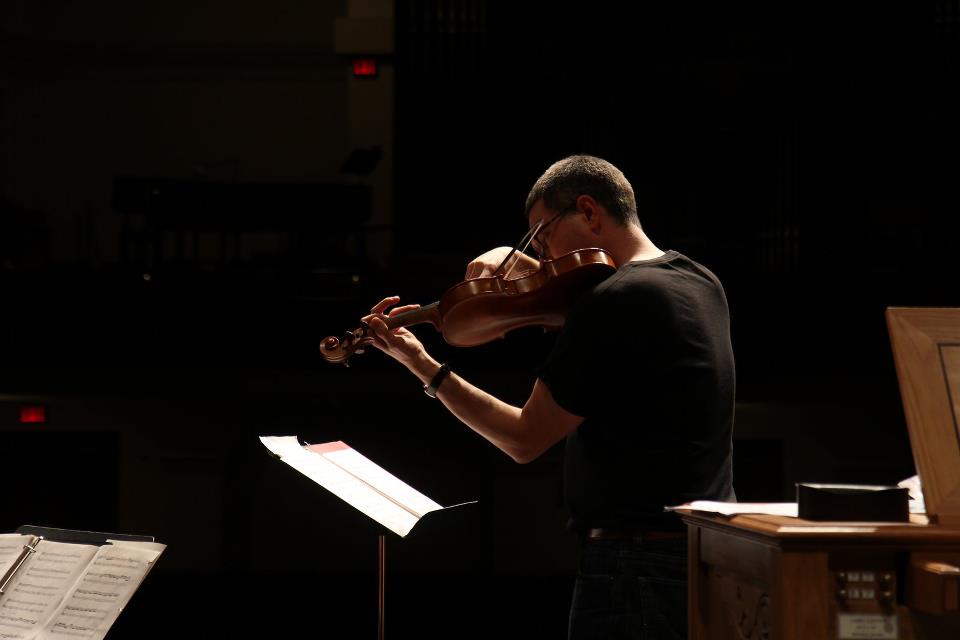
Paul Luchkow, viola
Paul Luchkow is a versatile violinist and violist whose activities cover the range of music from the 17th Century to the present day on modern and period instruments. In addition to the Victoria Baroque Players, he is a regular feature of Vancouver’s Early Music scene. Paul is a long-time member of the Pacific Baroque Orchestra and appears frequently in concerts for Early Music Vancouver, the Early Music Society of the Islands, as well as at Victoria’s Pacific Baroque Festival.
In demand as a leader, guest director, and educator, Paul has worked with Per Sonatori: Regina’s Baroque period-instrument ensemble, VoiceScapes and Spiritus Chamber Choir in Calgary, and he has given performances and masterclasses at universities across western Canada. As an adjudicator, Paul frequently hears and encourages young musicians across British Columbia.
A highlight of recent years has been his work with fortepianist Michael Jarvis and their exploration of Baroque, Classical and Romantic sonata repertoire on period instruments. They have two recordings: One of Hummel Sonatas (nominated for a Western Canada Music Award) for fortepiano and violin / viola on the Marquis Classics label, and a self-released recording of sonatas by Mozart. A third recording, Sonatas by the French composer Michel Corrette, will be released on Marquis in Spring 2017.
Paul makes his home in Victoria with his wife and children.
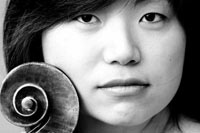
Beiliang Zhu, cello
Beiliang Zhu won the 1st prize and the Audience Award at the 2012 International Bach Competition in Leipzig (Violoncello/Baroque Violoncello). She was the first string player to receive this honor for performance on a baroque instrument. She completed her Master of Music from the Juilliard School in Historical Performance with Phoebe Carrai (Baroque cello) and Sarah Cunningham (Viola da Gamba), her Bachelor of Music and a Performer’s Certificate from the Eastman School of Music. Beiliang is currently pursuing a Doctor of Musical Arts in Violoncello, under the guidance of Steven Doane, as well as a Master of Arts in Ethnomusicology at the Eastman School of Music.
Hailed by the New York Times as “particularly exciting”, and by the New Yorker as bringing “telling nuances”, and as being “elegant and sensual, stylishly wild”, Beiliang has given solo recitals at the Bach Festival Leipzig, Boston Early Music Festival, The Vancouver Bach Festival, the Seoul Bach Festival and the Helicon Foundation. She has also performed with internationally acclaimed artists and ensembles, such as William Christie, Masaaki Suzuki, Monica Huggett, Paul O’Dette, the Boston Early Music Festival Orchestra, Juilliard Baroque, the Philadelphia Orchestra and the Trinity Wall Street Orchestra. She won a section cellist position in the Rochester Philharmonic Orchestra while still an undergraduate and continues to hold the principal cellist position of Mercury Houston.
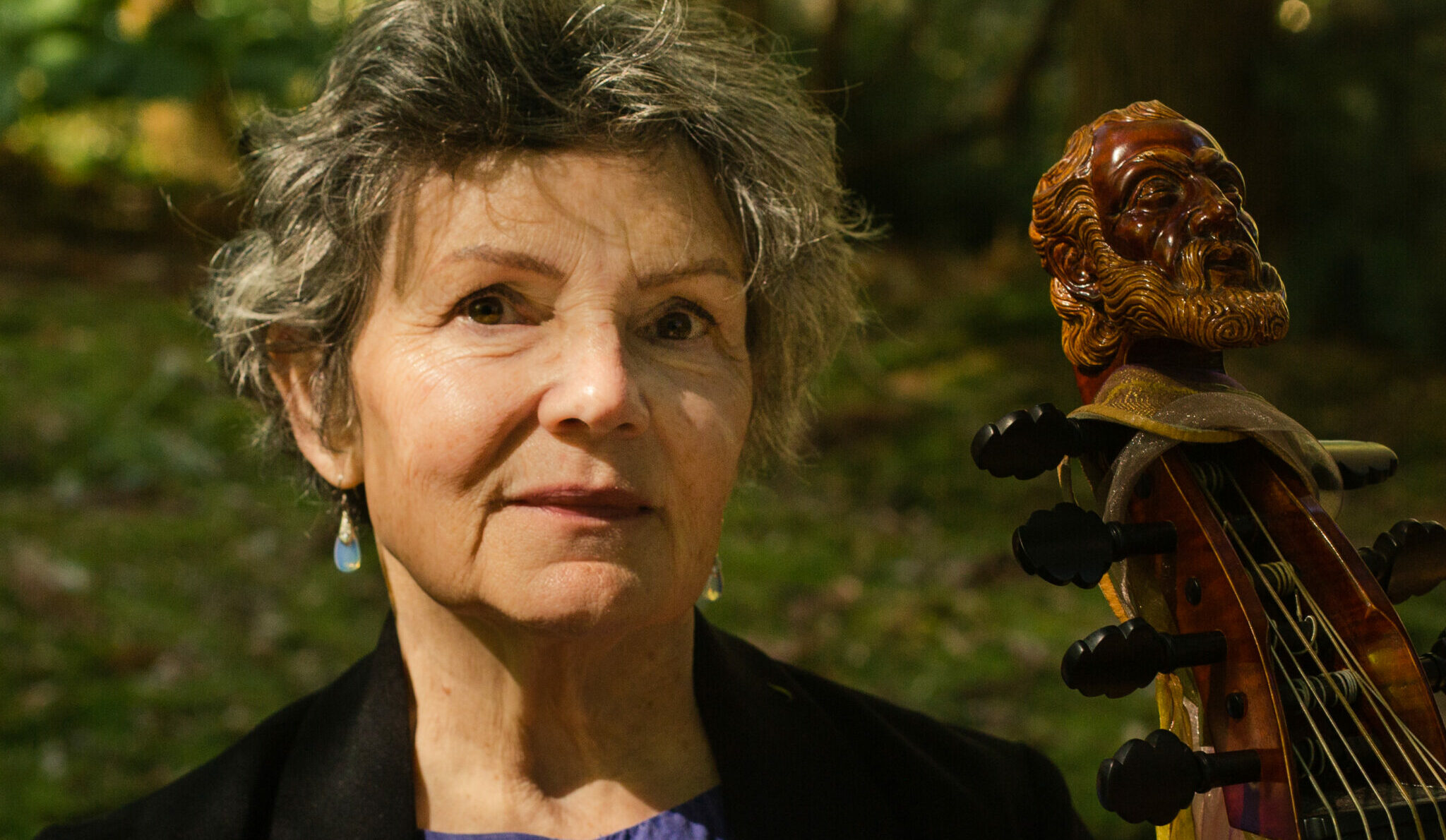
Natalie Mackie, violone
Natalie Mackie studied cello at the Conservatoire de Musique (Québec), followed by a degree from the School of Music, University of British Columbia. While at UBC she was introduced to the viola da gamba, and following graduation, she pursued further studies at the Koninklijk Conservatorium in The Hague. Natalie has played with many ensembles in Canada and the US, including New World Consort, Les Coucous Bénévoles, Tafelmusik, Portland, and Seattle Baroque Orchestras, Les Voix Humaines, Tempo Rubato, Les Voix Baroque, Oregon Bach Festival Orchestra, Victoria Baroque, and Vancouver Intercultural Orchestra among others. Natalie is a member of Pacific Baroque Orchestra and the chamber ensemble “La Modestine”- both Vancouver-based ensembles. She has toured throughout Canada, Europe, and the US and recorded for Radio France, German Radio, BBC, CBC, and NPR, as well as the Canadian label Atma Classique. Natalie is a regular performer in the Pacific Baroque Festival, held annually in Victoria, BC, and teaches in the Baroque Orchestra Mentorship Program at the University of British Columbia.
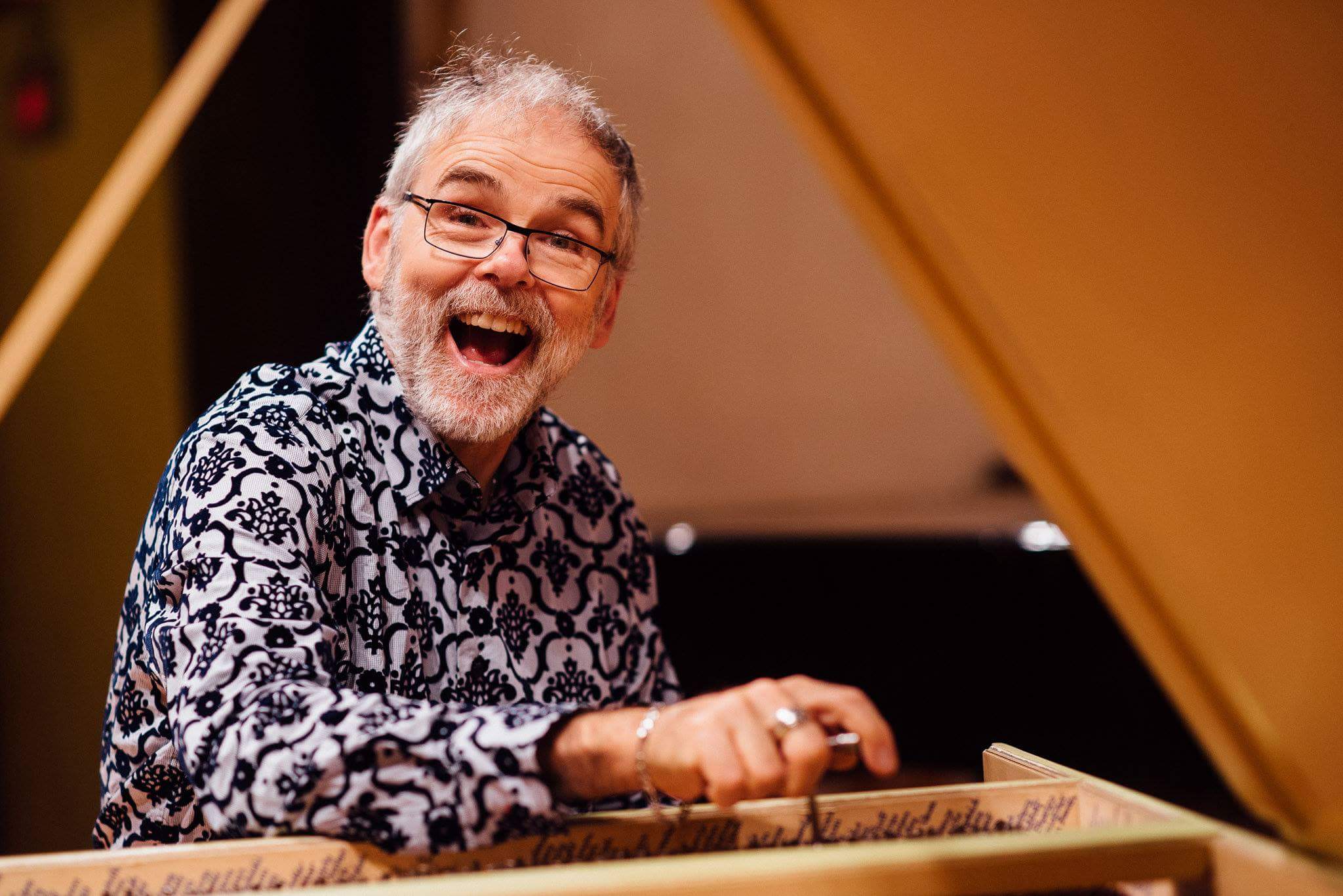
Michael Jarvis, organ
Michael Jarvis is one of Canada’s finest harpsichordists, fortepianists and continuo players and is in demand as a collaborative artist. In addition to performing across Canada, he has performed as soloist and continuo player throughout the USA, England, Italy and Bermuda.
Michael Jarvis may be heard on the Marquis Classics, Hungaroton, ATMA, Naxos, Solitudes and Avalon CD labels, and has often broadcast nationally and regionally for the CBC, as well as nationally across the US on NPR. He and violinist Paul Luchkow’s CD of Hummel’s op. 5 violin sonatas was chosen as a finalist as best classical album of the year in the Western Canadian Music Awards 2013. His most recent CD with Paul, Michel Corrette’s Sonatas for Harpsichord and Violin, Op. 25 (on mythological themes), was released to excellent reviews on the Marquis CD label in Spring 2017.
Michael was featured on two national Canadian television specials for Bravo: “A Baroque Christmas” and “A Baroque Easter”. He was also co-host and star of the 13-part television series “Come into the Parlour” for Bravo-TV. He was recently appointed conductor of the Bach on the Rock chamber choir and orchestra on Salt Spring Island.
He has taught harpsichord and continuo and lectured many times at the University of Toronto. He has taught harpsichord performance at Wilfred Laurier University in Waterloo, Ontario and at Havergal College, Toronto, and taught fortepiano at UBC.
When he is not playing early music, Michael is an avid collector of early jazz and early opera 78 rpm recordings and is an early phonograph restorer. Michael lives in Victoria, BC.
Note: Michael Jarvis tragically passed away on December 25, 2020. His obituary can be found here.
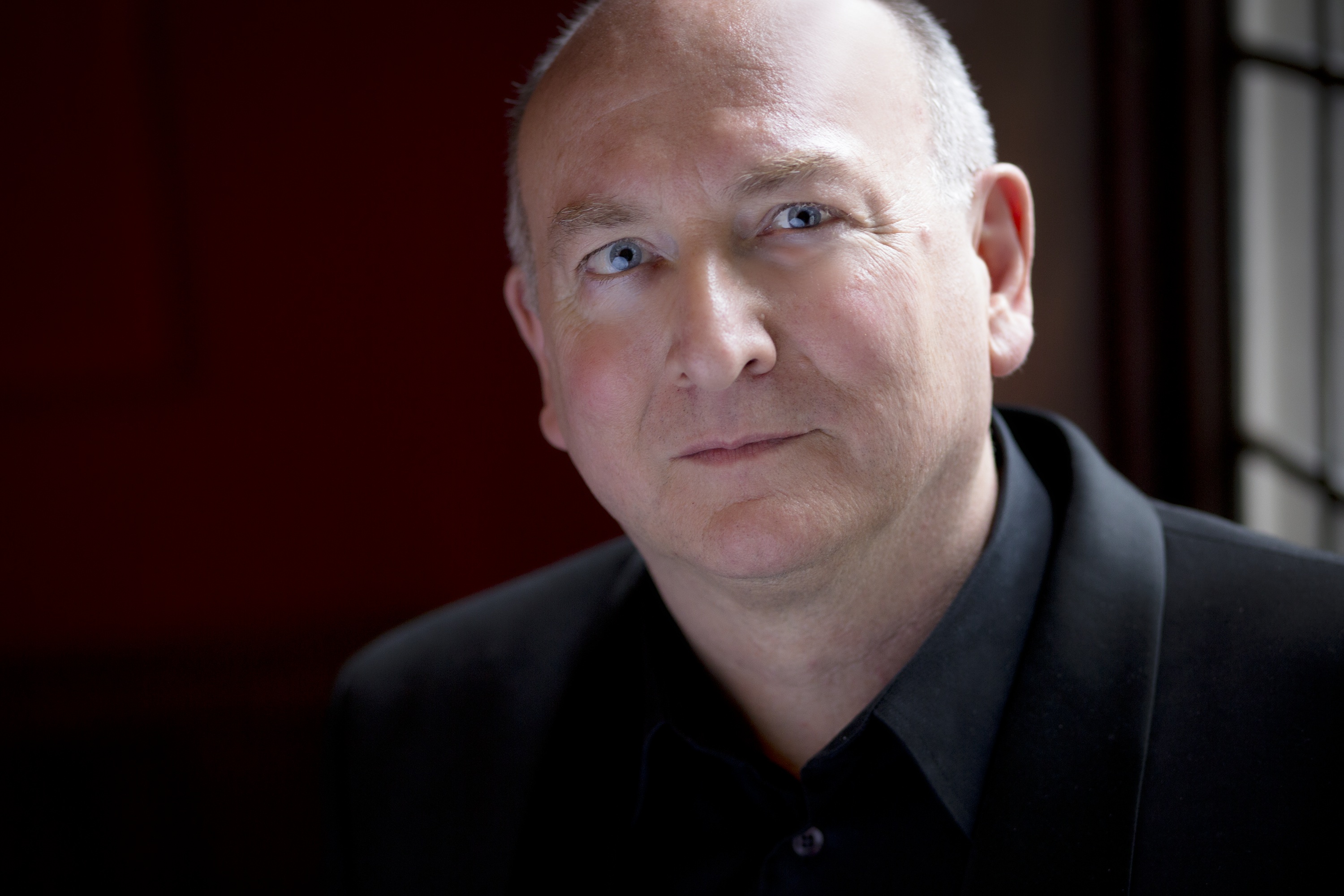
Stephen Stubbs, lute
Stephen Stubbs, who won the GRAMMY® Award as conductor for Best Opera Recording 2015, spent a 30-year career in Europe. He returned to his native Seattle in 2006 as one of the world’s most respected lutenists, conductors, and baroque opera specialists.
In 2007 Stephen established his new production company, Pacific MusicWorks, based in Seattle. He is the Boston Early Music Festival’s permanent artistic co-director, recordings of which were nominated for five GRAMMY awards. Also in 2015 BEMF recordings won two Echo Klassik awards and the Diapason d’Or de l’Année.
In addition to his ongoing commitments to PMW and BEMF, other recent appearances have included Handel’s Amadigi for Opera UCLA, Mozart’s Magic Flute and Cosi fan Tutte in Hawaii, Handel’s Agrippina and Semele for Opera Omaha, Cavalli’s Calisto and Rameau’s Hippolyte et Aricie for Juilliard and Mozart’s Il re pastore for the Merola program in San Francisco. He has conducted Handel’s Messiah with the Seattle, Edmonton, Birmingham and Houston Symphony orchestras.
His extensive discography as conductor and solo lutenist includes well over 100 CDs, which can be viewed at stephenstubbs.com, many of which have received international acclaim and awards.
Stephen is represented by Schwalbe and Partners (schwalbeandpartners.com).

